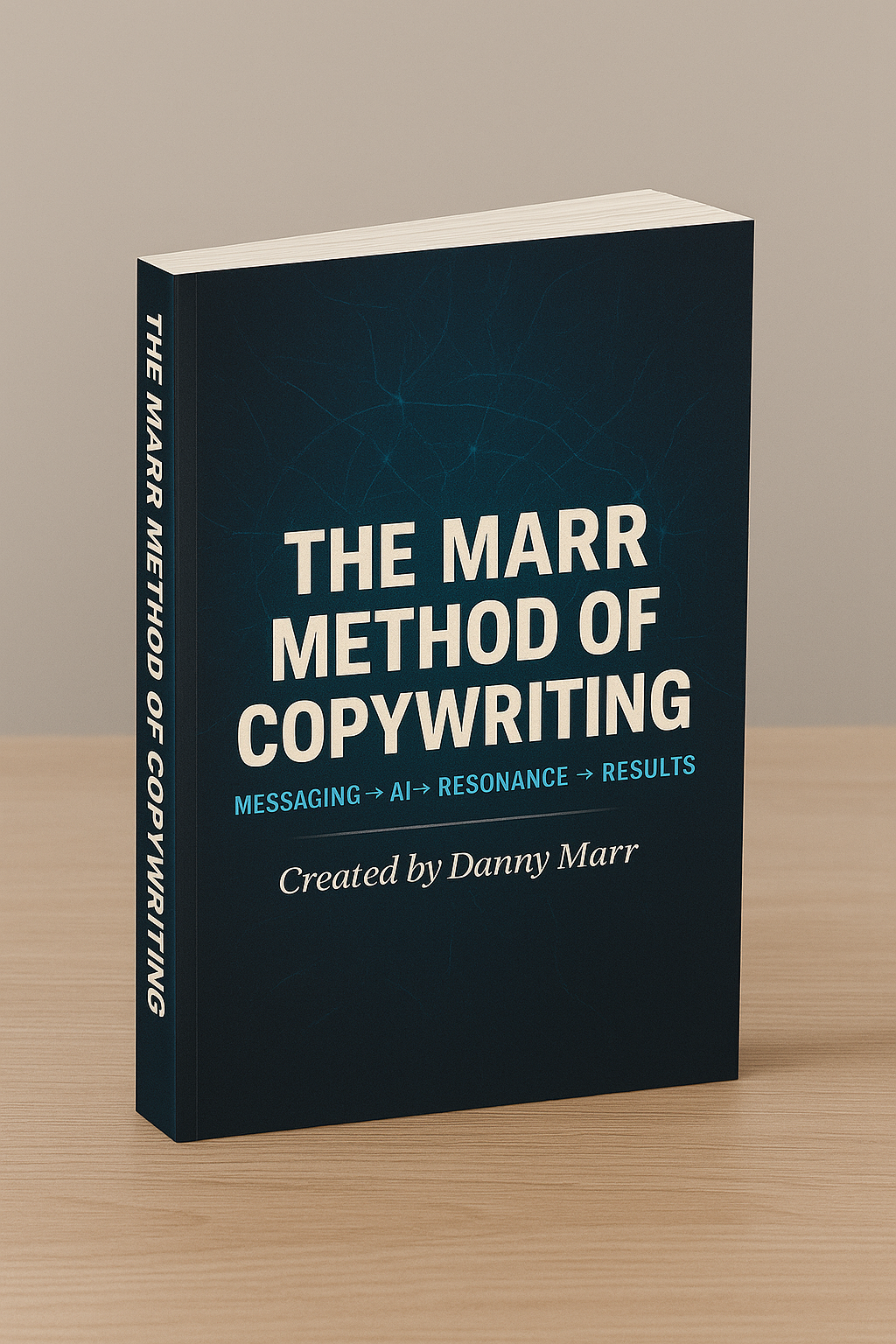
Introduction to AI Self-Coaching
In the present era of rapid progress, personal development is frequently overlooked due to the pressures of daily responsibilities.
However, with the rise of artificial intelligence, tools designed to support self-improvement have become more accessible than ever.
AI self-coaching is a practical approach that enables individuals to take charge of their mental and emotional development using AI-driven writing prompts.
By combining the technology’s ability to generate targeted insights with your unique understanding of your needs, you can create a powerful system for personal growth.
AI self-coaching revolves around the idea of using writing as a tool for self-reflection, goal-setting, and mindset development.
Instead of relying solely on external guidance, you can leverage AI to serve as a supportive companion in the process.
Whether you want to strengthen your confidence, build better habits, or develop a more resilient mindset, AI can help generate actionable prompts tailored to these goals.
What makes AI particularly effective in self-coaching is its ability to assist in breaking down complex issues into manageable steps.
For example, instead of facing a broad challenge like “reducing stress,” you can use AI-generated prompts to focus on smaller, actionable changes, such as identifying specific triggers or practicing daily gratitude.
The prompts encourage reflection, helping you uncover patterns and thought processes that may otherwise go unnoticed.
Additionally, AI tools can adapt to your evolving needs.
They offer flexibility, allowing you to revisit certain areas of focus or refine your approach over time.
This dynamic interaction ensures that your self-coaching journey remains relevant and personalized, no matter where you are in your growth process.
While traditional methods of self-help often require significant external input, AI self-coaching empowers you to become the primary driver of your development.
The process is not about replacing professional guidance when it’s needed, but rather about equipping yourself with tools to build self-awareness and make meaningful progress on your own terms.
Understanding Mental Growth Scripts

Mental growth scripts are structured frameworks you can use to guide your thoughts and actions toward positive change.
These scripts act as personalized tools for reflection and motivation, helping you reframe challenges, solidify goals, and nurture a healthier mindset.
By using mental growth scripts, you can create a step by step guide for navigating personal development in a practical and manageable way.
One key element of mental growth scripts is that they are entirely tailored to your needs.
For example, if you’re working on improving self-confidence, a script might include affirmations like, “I am capable of handling new challenges,” followed by a prompt to recall a recent accomplishment that made you proud.
These small, focused steps guide your thinking, enabling you to reinforce a positive narrative about yourself.
Another use of mental growth scripts could be addressing procrastination.
A script for this might begin with a question like, “What task am I avoiding, and why?”
It could then prompt you to break the task into smaller, more approachable steps, such as writing down the first action you need to take.
By focusing on manageable actions, the script helps you shift from being overwhelmed to feeling empowered to make progress.
Scripts can also be helpful for stress management.
A mental growth script designed for this purpose might include prompts like, “List three activities that bring you joy and plan to do one today,” or “Write down one stressful thought and challenge its accuracy.”
These exercises help redirect your attention to positive habits while fostering greater awareness of how you respond to stress.
For those working on improving relationships, a growth script might include prompts such as, “Reflect on one positive interaction you had recently and identify what made it successful,” or “List three ways you can show appreciation to someone close to you.”
These kinds of exercises promote a sense of connection and encourage proactive efforts to strengthen bonds with others.
What makes mental growth scripts particularly powerful is their ability to focus your attention on specific areas you’d like to improve.
With each session, they allow you to practice mindfulness, align your actions with your goals, and track your development in real time.
By integrating these scripts into your routine, you’ll create opportunities to reflect, adjust, and make progress that feels both meaningful and sustainable.
Getting Started with AI Writing Prompts

To begin using AI writing prompts for self-coaching, the first step is choosing an AI tool that suits your needs.
Many platforms, from apps to desktop software, offer writing assistance that can be adapted for personal growth.
Look for tools that allow customization so you can create prompts that align with your specific goals, whether that’s improving self-confidence, managing stress, or building new habits.
Once you’ve selected a tool, start by identifying a key area you’d like to work on.
Think about a specific challenge, habit, or mindset you want to address.
For example, if you’re feeling overwhelmed by tasks, your focus might be on improving time management.
If self-doubt is holding you back, you might prioritize building self-assurance.
Defining a clear focus will make it easier to generate targeted prompts that encourage meaningful reflection and action.
Next, experiment with simple prompts to establish a routine.
A good starting point is to use open ended questions that invite exploration and self-reflection.
For instance, prompts like, “What is one action I can take today to feel more in control?” or “What small success did I achieve this week, and how can I build on it?” encourage you to consider actionable steps and celebrate progress.
These types of prompts help you ease into the process and build momentum over time.
As you become more comfortable, you can start creating more complex prompts tailored to your needs.
Try combining questions with specific actions, such as, “Write about a recent challenge and list three lessons you learned from it,” or “Describe how you want to feel at the end of the day and outline steps to make that happen.”
These prompts not only encourage introspection but also push you to take proactive steps toward change.
It’s also helpful to experiment with different prompt formats.
Some people may prefer direct questions, while others might respond better to prompts that suggest scenarios or encourage journaling in a free-flowing style.
Adjust the structure and tone of your prompts based on what feels most effective for your mindset and personality.
If a particular type of prompt doesn’t resonate, refine it or try another approach.
Practical Examples of AI Prompts

AI writing prompts can be incredibly versatile tools for self-coaching, helping you address a wide range of goals and challenges.
Below are some practical examples you can adapt to fit your personal development journey.
These examples are grouped by focus area to make it easier to find prompts that resonate with your needs.
**1. Building Self-Confidence:**
– “What is one skill or strength I possess that I often overlook? How can I use it more intentionally this week?”
– “Describe a situation where you felt proud of yourself recently. What steps can you take to replicate that feeling?”
– “Write a letter of encouragement to yourself as if you were supporting a friend.”
**2. Improving Time Management:**
– “What is one task I can prioritize today to reduce my overall stress?”
– “Write down all the tasks on your mind right now. Which three are most urgent, and how can you tackle them one step at a time?”
– “Reflect on how you spent your time yesterday. What worked well, and what could you adjust for better focus?”
**3. Managing Stress:**
– “What is one thing that brings you a sense of calm? How can you incorporate it into your routine this week?”
– “Think about a recent stressful situation. What could you do differently next time to respond more effectively?”
– “Write about a place or activity that makes you feel at ease. How can you bring elements of that experience into your daily life?”
**4. Strengthening Relationships:**
– “Who in your life has supported you recently? Write about why you appreciate them and consider sharing this with them.”
– “What is one small action you can take today to show kindness to someone close to you?”
– “Reflect on a moment when you felt connected to someone. What did you do to foster that connection, and how can you recreate it?”
**5. Overcoming Procrastination:**
– “What is one task you’ve been avoiding? What is the first, smallest step you can take to begin?”
– “List three reasons why completing this task is important to you.”
– “Imagine how you’ll feel after finishing the task. Write about that sense of accomplishment to motivate yourself.”
Experiment with these prompts and adapt them to suit your individual goals.
Creating Personalized Growth Scripts

Personalized growth scripts are a powerful way to create structured, actionable plans for self-improvement that fit your unique goals and circumstances.
To begin crafting your own, start by identifying a specific area of focus.
Whether you want to boost your confidence, improve relationships, or develop healthier habits, having a clear intention will guide the creation of your script.
Next, think about breaking down your focus area into smaller, manageable components.
For example, if you’re working on reducing stress, your script could include steps like identifying stress triggers, practicing breathing exercises, and scheduling moments of relaxation into your day.
Each step should be practical and achievable, making it easier to stay consistent.
Once you have your focus and steps outlined, begin creating prompts that encourage reflection and action.
For instance, a confidence-building script might include prompts such as, “What is one skill I want to practice this week?” or “Write about a time when I handled a challenge successfully.
What did I learn about myself?” These prompts not only guide your thoughts but also inspire you to take measurable steps toward growth.
Consider integrating affirmations into your scripts as well.
For example, a script aimed at overcoming procrastination could start with an affirmation like, “I have the ability to take small steps toward progress today.”
This can then be followed by a prompt like, “What is one task I’ve been delaying, and how can I break it into the first three actions I need to take?”
For more interactive scripts, you can design prompts that ask you to plan and execute specific activities.
For instance, if your goal is to nurture relationships, a prompt might be, “Think of one person you’d like to reconnect with.
Write down three ways to reach out this week and commit to doing at least one.”
These action based exercises encourage you to move beyond reflection and implement real change.
Tailoring each script to your preferences is essential.
Some people may prefer a structured format with bullet points and clear action items, while others might find that freewriting in response to open ended prompts feels more natural.
Adjust your approach until you find what resonates with you. Incorporate your scripts into your routine, revisiting them regularly to adapt as your needs evolve.
Tracking Progress and Adjusting Strategies

Keeping track of your progress is a key part of maintaining motivation and ensuring that your self-coaching efforts lead to meaningful change.
Regularly reviewing your work with AI writing prompts and mental growth scripts allows you to identify patterns, celebrate wins, and refine your strategies as needed.
Begin by setting aside time to reflect on your experiences with the prompts.
Consider keeping a dedicated journal or digital document to track your responses and insights.
This record can help you notice trends over time, such as recurring challenges or areas where you’ve made consistent progress.
A simple way to organize your reflections is by categorizing them based on your focus areas, like stress management, confidence building, or relationship improvement.
In addition to reviewing your responses, evaluate how effective each prompt or script has been in helping you achieve your goals.
If you notice that certain prompts don’t resonate or lead to actionable steps, modify them to better align with your needs.
For example, if a question feels too vague, you might rewrite it to be more specific or relevant to your current situation.
Flexibility is key, as your priorities and challenges may shift over time.
Tracking progress also includes celebrating milestones, no matter how small.
Acknowledge when you’ve taken a step forward, such as completing a task you’ve been avoiding or successfully applying a new habit.
These moments reinforce your commitment to growth and make the process more rewarding.
If you encounter setbacks, use them as opportunities to learn. Reflect on what might have contributed to the challenge and consider adjusting your approach.
For instance, if time management remains a struggle, you could revisit prompts focused on breaking tasks into smaller steps or experiment with prioritization techniques.
Lastly, leverage feedback from the AI tools you’re using.
Some platforms may provide analytics or summaries that offer additional insights into your writing patterns or progress.
Use these features to gain a deeper understanding of how your mindset and habits are evolving.
Remember, tracking progress isn’t about perfection; it’s about maintaining awareness and making adjustments that keep you moving toward your goals.
Regular reflection and fine-tuning will ensure that your self-coaching journey stays both effective and adaptable to your growth.
Conclusion and Next Steps

As you wrap up your exploration of AI self-coaching and mental growth scripts, the next step is to put what you’ve learned into action.
Start by choosing one focus area that feels most important to you right now; whether it’s improving confidence, managing stress, or enhancing relationships.
By narrowing your attention, you’ll be able to dive into the process with clarity and purpose.
Set aside time each day or week to engage with your AI writing prompts and growth scripts.
Treat this as a personal commitment, much like exercising or learning a new skill.
Consistency is key, and even just a few minutes of reflection can lead to noticeable improvements over time. If you’re unsure where to begin, revisit some of the example prompts and scripts discussed earlier, adapting them to suit your unique goals.
For instance, if you want to strengthen your time management, try starting each day with a simple prompt like, “What are the three most important tasks I need to accomplish today?”
Similarly, if building stronger relationships is your focus, use a prompt such as, “What’s one thoughtful action I can take to show appreciation to someone I care about?”
Make adjustments as you go. If a particular prompt or script isn’t resonating, don’t hesitate to tweak it.
Personalization is what makes this process effective, so experiment with different styles, tones, and formats until you find what works best for you.
The goal is to create a system that feels natural and empowering, not rigid or overwhelming.
Consider pairing your writing exercises with other habits that support your growth, like practicing mindfulness, setting daily intentions, or scheduling time to review your progress each week.
These complementary practices can enhance your efforts and help you stay on track.
Finally, remember that this journey is about progress, not perfection.
Celebrate small wins and reflect on the insights you gain along the way.
By incorporating AI prompts and scripts into your routine, you’re equipping yourself with tools to take charge of your personal development and mindset; one thoughtful step at a time.
💡 Quick question before you go:
Are you using AI in your copywriting — or letting it use you?
Take the 2-minute quiz to uncover your Copywriting + AI Style, get your personalized analysis, and receive a free copy of The Marr Method of Copywriting.
 👉 Take the Quiz — Unlock Your Style
👉 Take the Quiz — Unlock Your Style
